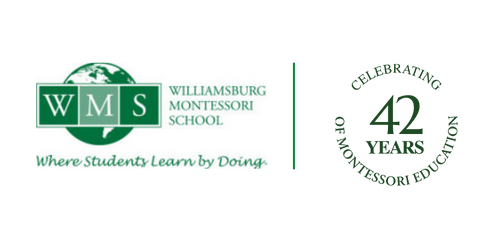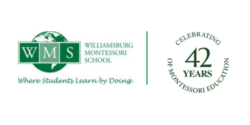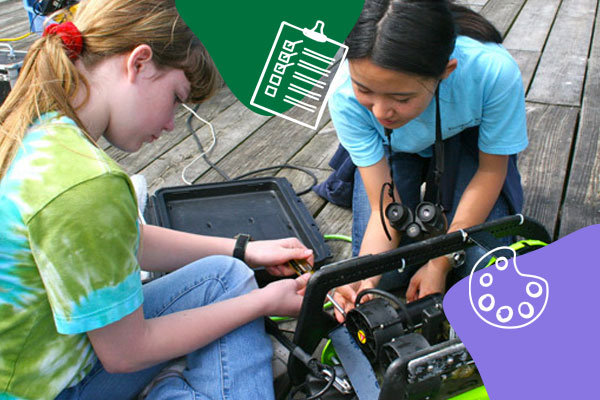As parents, we all want to set our children up for success. Choosing the right educational path is one of the most important decisions that we can make. With so many options, educational methodologies, studies, and newsworthy concerns swirling around about our lagging educational system, our sensories are overloaded with negative school reviews and outcomes. Maybe you daydream about your toddler as an adult in a white coat performing surgery, or in a tailored suit litigating a big case. Or maybe you ponder the best way to get your 3 year old on the fast track to Harvard. The point is, we all want our children to be successful. However, remembering the stress induced, competition riddled years of academia, you might also recognize that you want something different for your child – an environment that encourages respect and self sufficiency, in a peaceful setting that prioritizes the natural process of learning over a merit based grading system. A Montessori school education embodies this concept. If you live in the beautiful vicinity of the historic triangle, then Williamsburg Montessori School is your best option.
What is a Montessori Education?
Montessori is defined as a system of education for young people that seeks to develop natural interests and activities at the early childhood stage. Instead of using the typical, formal teaching methods, the Montessori teacher closely observes the students, and guides them through their individual natural learning process. With a focus on and commitment to respect for independence and curiosity, play time is valued as a learning component, and each child is encouraged to learn in their own way. Classes consist of 3 year, multi-age groups. With intentionally designed learning tools, children grasp concepts like cooperation, and conflict resolution through social interaction and movement. In this environment, no letter grades, punishment, or rewards are given, so the competitiveness and stress associated with achievement do not exist. Additionally, children learn good habits like how to take a strategic approach to learning and life, and other valuable life lessons like organization and personal responsibility early. In the Montessori classroom, mistakes are lauded as opportunities for growth.
Dr. Maria Montessori
Born in 1870, Dr. Maria Montessori was an innovative thinker. This trailblazer was breaking glass ceilings early as the first female physician in Italy. She worked extensively providing medical care for children, including those with special needs at a psychiatric clinic in Rome. It was her success in the approach she took to this work that inspired her to adopt her personal concept of children learning in their own way, at their own pace that prompted her to open schools globally. The Montessori school landed in the US in 1912. It was taught and heavily promoted by the same Alexander Graham Bell that invented the telephone with the assistance of Lewis Latimer. Bell had never agreed with the rigors of traditional education and saw it as a detriment. He believed that the Montessori method was the best alternative and became instrumental in the growth of Montessori schools around the US.
Today, there are many Montessori schools to choose from, and most of them align with the original five guiding principles:
- Respect for the Child – Children should be respected
- Absorbent Mind – By living, children are constantly learning from the world around them
- Sensitive Periods – There are certain periods where children are more ready to learn certain skills
- The Prepared Environment – Children learn best in an environment that has been prepared to enable them to do things for themselves
- Auto Education – Self-education – the concept that children are capable of educating themselves
Choose Williamsburg Montessori School
Voted number one in the Virginia Gazette, Best of Greater Williamsburg, and a 2020 gold winner in the Best of Williamsburg contest, Williamsburg Montessori School abides by these principles. We have a proven track record of providing carefully curated, quality Montessori education. We are committed to effectively guiding the natural learning process of each child. In our small classes, we provide a hands on, peaceful learning environment where children are encouraged to explore their own ways of handling challenges and to help each other learn. We are committed to respect, and inclusivity. We invite you to bring your favorite little people to our school to receive the education and personal development tools that will prepare them to be dynamic, considerate, emotionally and mentally intelligent, mature individuals, fully prepared and poised to achieve their goals in life.
- References:
Lillard, A. (2006, Sept 29). Evaluating Montessori Education. Science.org.
https://www.science.org/doi/10.1126/science.1132362 - Lopez.C. Pedagogy Profile: The Montessori Method. Great Schools.org.
https://www.supplydesk.co.uk/resource/pedagogy-profile-montessori-method/ - Crawford, L. (2014, March 13). The Inside Scoop on Montessori Schools.Supplydesk.co.uk.com.
https://www.greatschools.org/gk/articles/montessori-schools/ - McCarthy, J. Alexander Graham Bell and Montessori. Montessorieducation.com.
https://www.montessorieducation.com/blog/alexander-graham-bell-and-montessori



